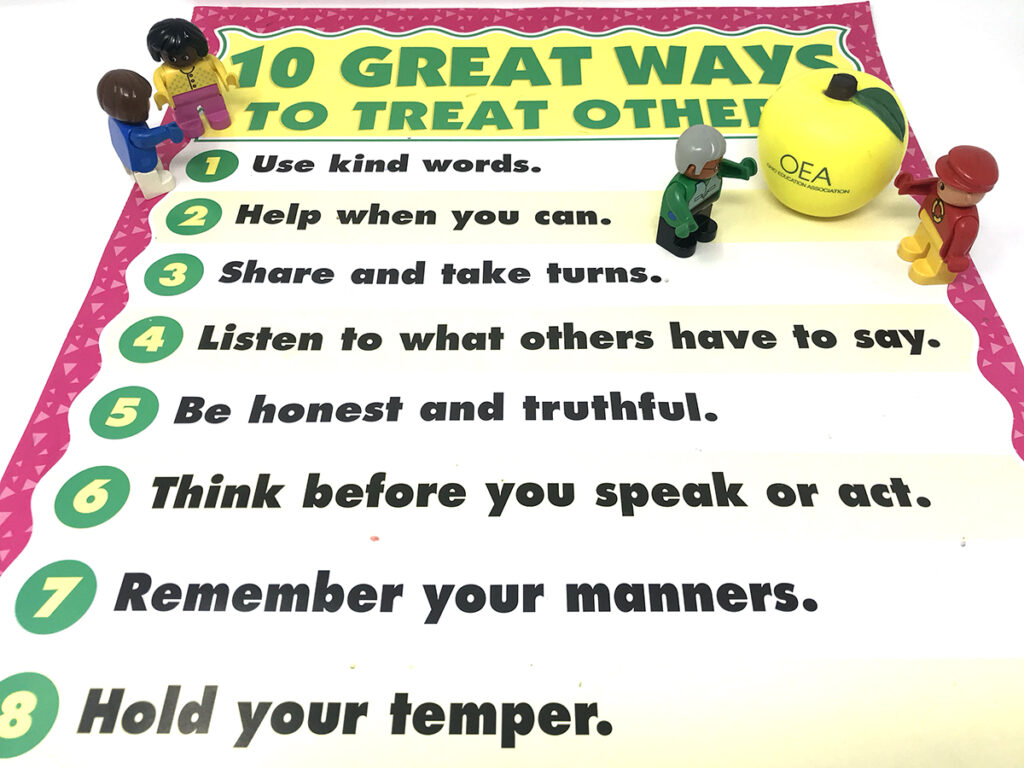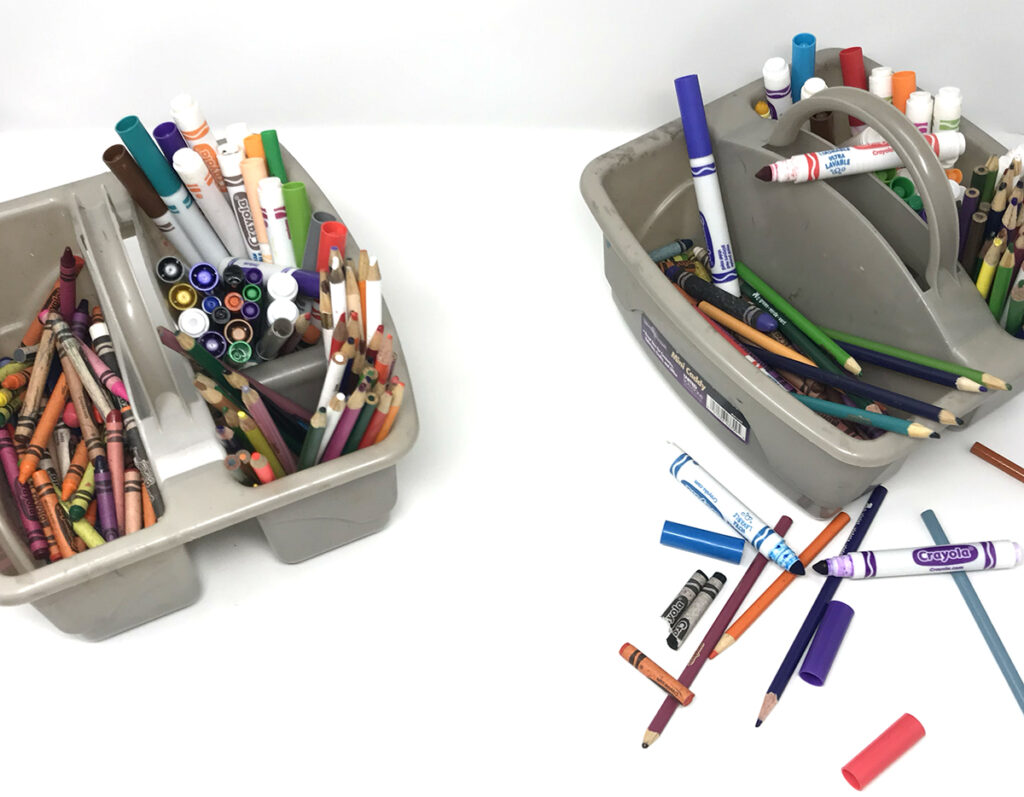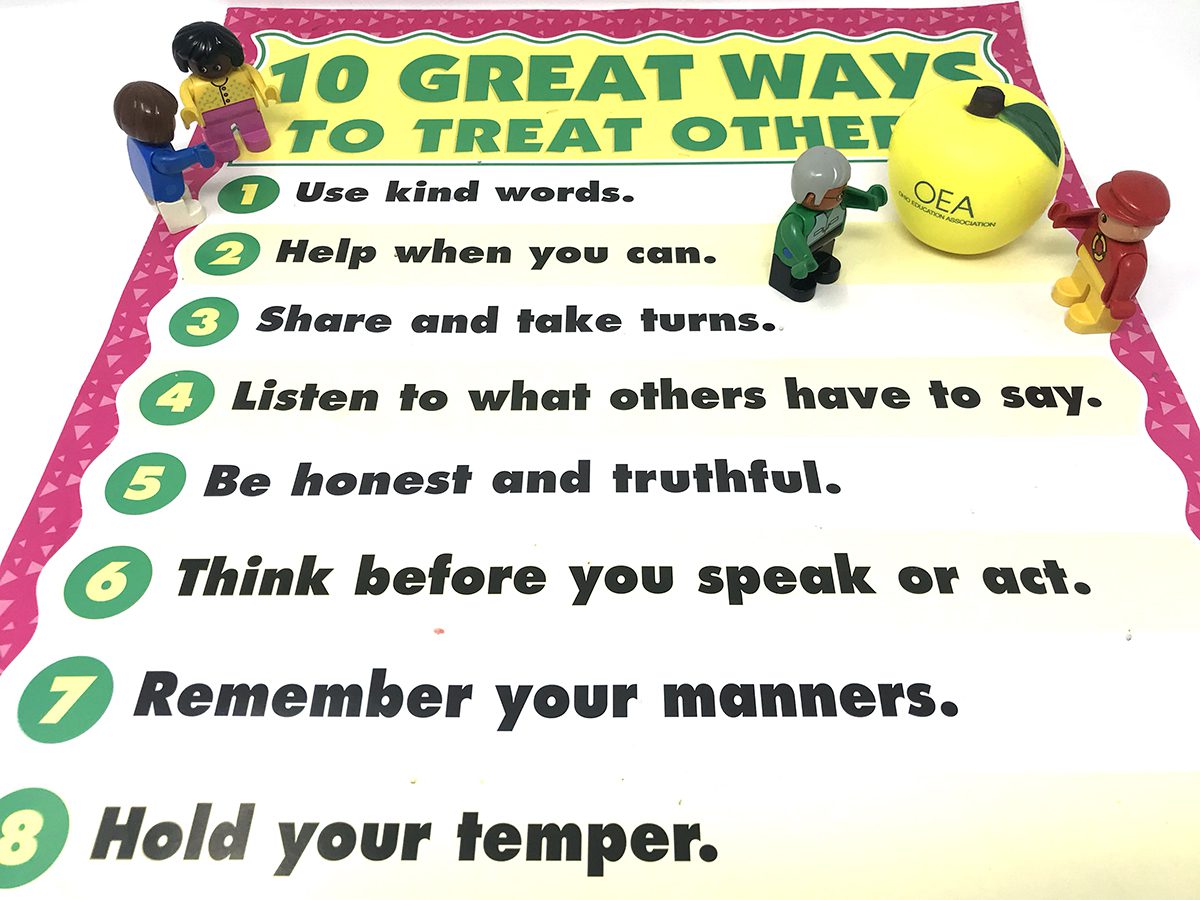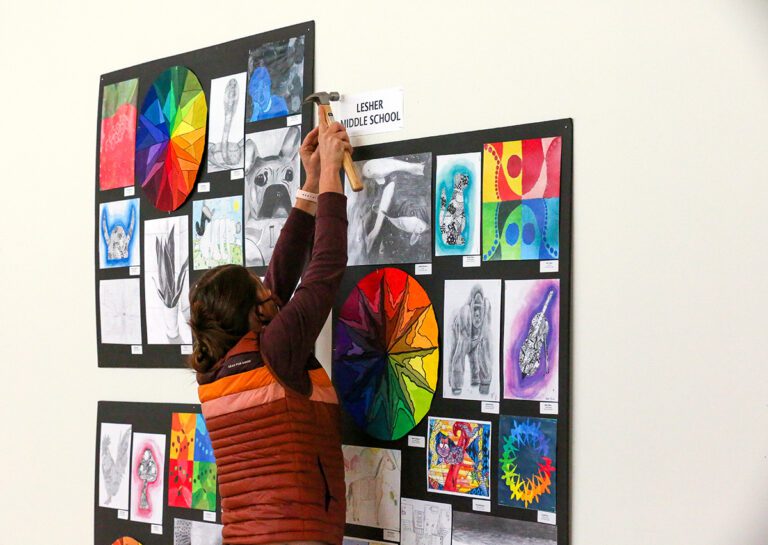Being an art teacher is busy work between planning, grading, teaching, behavior management, meetings, prep, and cleanup. All of which is usually in a day’s work! But throw in a difficult coworker, and the day just gets a little more challenging.
As teachers and adults, it is part of our job to guide students through these social situations with grace, compassion, and kindness. Easier said than done, and we must heed our own advice with our colleagues. Doing so can encourage a positive work environment, rapport, and morale.
When issues are not addressed, we can manifest negative emotions towards that person and withdraw from wanting to help them. Furthermore, an unhealthy work environment can lower productivity and have an ill effect on one’s health. The type of difficulty you may have with a group or individual may also determine your approach to dealing with them.

Here are five challenges you may be dealing with as an art teacher.
1. Personality Conflicts
One of the biggest difficulties in any workplace is dealing with a personality conflict. It could be that you disagree with their interests and opinions, or you just do not jive with their energy. Nevertheless, this can be tough to manage, as we cannot change others.
2. Gossip
You handled a behavior situation with a student, and you felt great about the resolution. However, another teacher saw you speaking to the student. The next thing you know, they are in the lunchroom blabbing about how poorly you took care of the situation, and word is spreading like wildfire. Gossip and hearsay can be tricky situations to squelch. After all, it is not only the person spreading the rumors but the people who are listening who add fuel to the fire.
3. Co-teacher Misalignment
Coteaching can be wonderful; as the old saying goes, “Two heads are better than one.” But if those heads butt together like two rams in the wilderness, this is bound to cause a ruckus. This can occur with classroom aides, lesson collaboration, or intergenerational teaching.
4. Shared Space Gone Awry
It is possible that you do not co-teach with anyone but instead share a room. This can be daunting if the other teacher does not share the same organizational sentiment or classroom routines as you. Maybe they do not clean the paint trays properly, leave piles of work everywhere, or divide up the classroom space inefficiently, which is proving to be too much for you. Check out this article for more tips on sharing a room with another teacher.
5. Administration
Maybe your difficult colleague is an administrator. Personality conflicts and disagreements can happen with upper management, which can add a wrench to the mix. Navigating a conflict with a boss should be handled with the utmost sensitivity.

Now that we have laid out five possible scenarios you may be dealing with, let’s look at some possible solutions so you do not let these situations get the best of your work day. After all, we tend to spend more time at work than at home. The scenarios and solutions are by no means comprehensive and are not laid out in any specific order.
Let’s explore four possible solutions to mend your challenging situation.
1. Ignore it.
We probably tell this to our students constantly, especially when they tattle on each other! “Suzie made a face at me,” “Well, just ignore them, please.” But this works in the professional world too. Sometimes we can allow something to be a problem if we invite negative energy into our thoughts and assume the worst about someone or their intentions. Therefore, if we simply ignore someone’s rude comment in the lunchroom or their seemingly biased political views, we do not exacerbate the problem. Take a deep breath and let it roll because it is not worth your time and energy. Plus, you probably have a stack of paintings to grade anyway!
2. Confront them.
Maybe the problem is bad enough that we need to step in and say something. This can be the case if a coworker repeatedly misuses your kindness for weakness and pushes their work off on you. Or, perhaps you walk into the lunchroom to overhear the same person gossiping about you again, which is so not cool!
Here are some tips to guide your conversation:
- Be professional, polite, and direct when you make your ask.
It is fine to stand up for yourself, but do not demean or berate the other person. For example, you may have a more organizationally relaxed coworker with whom you share a room. You may ask them to keep the floors clear so your students can safely navigate around the classroom. - Speak in private.
Make a solid attempt to approach the other person when they are available and in private. If the conversation does not go well, ask a neutral colleague or union representative to be present for a follow-up meeting. - Do not be hasty.
Sometimes, confrontation can burn a bridge if you react too quickly. Wait until a singular incident becomes a habit before formally confronting them. Also, take time to consider your word choices and approach before you talk.
3. Let actions speak louder than words.
If your personal philosophies sway to a higher level, let your actions speak louder than your words. Show someone their hurtful comments will not stop you or pause “extraneous” work outside of your contract if you are being taken advantage of. You can also “kill them with kindness” because positivity shapes our behavior more than negativity.
For example, say you heard another teacher gossiping about you. You see them in the hall, so you purposefully and simply say, “Good morning!” and keep on with your day. Sometimes, not reacting to someone else’s behavior and confronting them with kindness will extinguish the situation.
4. Speak to an administrator or your union.
It is possible that you have tried other avenues to no avail, or the situation warrants more decisive action. In any case, getting an administrator or union representative involved may be what is needed to resolve the issue. Handling things informally before they become a bigger problem will benefit everyone involved. Just keep in mind not to take this step lightly, and save it for more serious situations or when you have made repeated efforts to resolve an issue, but the other party has no interest and/or is combative. Adhere to your district and school guidelines and negotiated agreement for policies and procedures around taking this next step.

No matter how you slice it, dealing with a difficult colleague is challenging. Tread carefully and be sensitive in how you ameliorate the situation. The reality is that you may have to work with someone for many, many years in the same school building. Therefore, you will have to endure how the conflict unfolds and is or isn’t resolved. In the end, it is the best policy to be respectful and professional. Refer to your state’s professional code of conduct to familiarize yourself with what is expected of you and your coworkers. We, as teachers, are all stronger as a united front when we all get along.
Reflect on a tricky situation or hard conversation with a coworker. What would you do differently next time?
What tip or piece of advice would you give to someone navigating a difficult colleague?
Magazine articles and podcasts are opinions of professional education contributors and do not necessarily represent the position of the Art of Education University (AOEU) or its academic offerings. Contributors use terms in the way they are most often talked about in the scope of their educational experiences.





